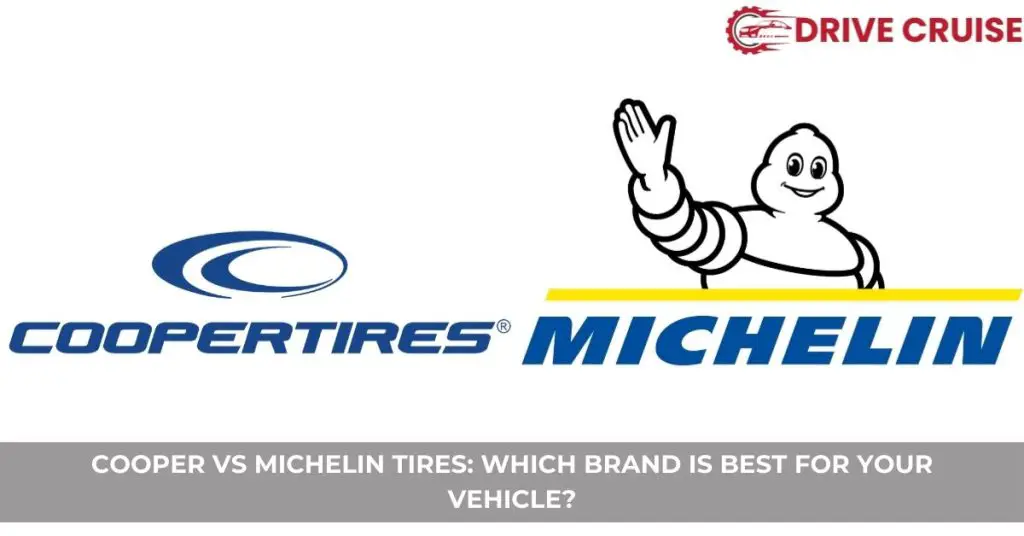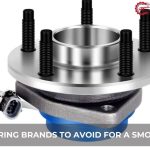When it comes to choosing the right tires for our vehicle, we’re all looking for that perfect blend of durability, performance, and value. Enter the age-old debate: Cooper versus Michelin tires. Both brands have their loyalists and skeptics, but what really sets them apart? It’s a question we’ve all pondered at one point or another, especially when faced with the daunting aisles of tire options.
In this exploration, we’ll dive into the nitty-gritty of what makes each brand tick. From their humble beginnings to their current standings in the global market, we’re on a mission to uncover the truth. Whether you’re a speed enthusiast or a daily commuter, understanding the strengths and weaknesses of Cooper and Michelin tires can make all the difference in your driving experience. Let’s get rolling and find out which tire truly comes out on top.
Overview of Cooper Tires
Diving deeper into the specifics, let’s talk about Cooper Tires and what makes them stand out in the competitive tire industry. Cooper Tires, a staple in the American tire industry, has built a reputation for producing reliable, cost-effective tires that cater to a wide range of vehicles, including passenger cars, trucks, and SUVs. Founded in 1914, the company has over a century’s worth of experience in tire manufacturing, which has allowed it to perfect its product offerings to suit the needs and preferences of drivers across the globe.
One of Cooper’s main selling points is its commitment to affordability without compromising on quality. Drivers often find that Cooper Tires offer excellent value for their money, providing durable and dependable tires that perform well in various driving conditions. This balance between cost and performance makes Cooper a popular choice among budget-conscious consumers who are not willing to sacrifice safety and reliability for a lower price tag.
In addition to their economic advantages, Cooper Tires are known for their innovative technology. For instance, they have developed tires with advanced tread designs and rubber compounds to enhance grip, reduce road noise, and improve overall tire lifespan. These technological advancements demonstrate Cooper’s dedication to not only meeting but exceeding customer expectations in terms of tire performance and longevity.
Moreover, Cooper Tires places a significant emphasis on customer satisfaction and safety. The company undergoes rigorous testing procedures to ensure their tires meet high safety standards, offering peace of mind to drivers. Their products come with warranties that underscore their confidence in the quality and durability of their tires, further establishing trust with their customer base.
As we continue to explore the nuanced differences between Cooper and Michelin tires, it’s clear that Cooper offers a compelling package of affordability, innovation, and safety. This makes Cooper Tires an attractive option for those looking to balance budget and performance in their tire purchase decisions.
Overview of Michelin Tires
Transitioning from the context of Cooper Tires, we find Michelin stepping into the spotlight with a different set of attributes and a compelling legacy. Michelin, based in Clermont-Ferrand, France, has etched its name into the annals of tire manufacturing history, not just as a pioneer but as an innovator. Established in 1889, Michelin has grown significantly, boasting a global presence marked by its commitment to excellence in tire safety, durability, and performance.
Michelin tires stand out for their exceptional quality and longevity. Pioneers in tire technology, Michelin invests heavily in research and development to ensure that their products set benchmarks for fuel efficiency, traction, and wear resistance. This dedication has resulted in patented technologies such as the Michelin Total Performance, which ensures that all attributes of the tire are optimized without compromising on any front.
Safety is another cornerstone of Michelin’s philosophy. The brand is renowned for producing tires that offer superior handling and braking in various driving conditions, including wet, dry, and snow-covered surfaces. This focus on safety, combined with the tires’ longevity, contributes to Michelin’s reputation as a premium tire brand.
Moreover, Michelin’s product range is diverse, catering to an array of vehicles, including passenger cars, motorcycles, trucks, and even airplanes. Each category benefits from Michelin’s innovative approach to tire design and manufacturing, ensuring that every Michelin tire meets the highest standards of quality and performance.
Michelin’s commitment to sustainability also deserves mention. The company is actively involved in developing environmentally friendly tires and reducing its carbon footprint through sustainable manufacturing practices. These efforts highlight Michelin’s role as a responsible leader in the tire industry.
In essence, Michelin tires represent a blend of tradition, innovation, and commitment to excellence. For those prioritizing safety, durability, and performance, albeit often at a higher price point, Michelin offers a compelling choice that mirrors its prestigious history and forward-thinking approach.
Performance Comparison
Diving into the performance comparison of Cooper and Michelin tires, it’s crucial to analyze their behavior under various conditions. Both brands excel, yet they cater to different needs and preferences.
Starting with Michelin, these tires are celebrated for their outstanding grip and stability, especially in wet conditions. Michelin’s use of advanced technology and high-quality materials ensures that drivers experience superior handling and reduced stopping distances, pivotal for safety. Models like the Michelin Pilot Sport and the Michelin Primacy are benchmarks in the industry for performance and durability.
On the flip side, Cooper tires offer commendable performance, particularly noted for their robust construction and reliable traction in off-road conditions. The Cooper Discoverer line, for instance, garners praise for its exceptional handling on rough terrain and durability. Cooper’s tires might not match Michelin’s superior wet performance but stand out in providing a comfortable, all-terrain driving experience at a more accessible price point.
Fuel efficiency is another arena where Michelin tires often take the lead. Thanks to their emphasis on low rolling resistance designs, Michelin tires help drivers conserve fuel over the tire’s lifespan, which, despite the initial higher cost, can lead to savings and less environmental impact.
In terms of winter driving, Michelin again shines with products like the Michelin X-Ice series, engineered for extreme weather conditions and offering excellent traction on ice and snow. While Cooper also offers winter tires, such as the Cooper Weather-Master series, the technology and materials used by Michelin often provide a slight edge in terms of safety and control in severe winter conditions.
Ultimately, choosing between Cooper and Michelin tires depends on one’s priorities—whether it’s Michelin’s advanced safety and performance features or Cooper’s value for money and durability for rough conditions. Both brands have their strengths, making them favored choices among different segments of drivers.
Price Comparison
Moving from the performance comparison, let’s dive into the cost implications of choosing between Cooper and Michelin tires. When shopping for tires, price plays a crucial role in decision-making. Cooper and Michelin offer distinct value propositions that reflect in their pricing.
Typically, Cooper tires come at a more accessible price point than Michelin. For instance, Cooper’s mainstream passenger car tiers such as the Cooper CS5 Ultra Touring are generally more affordable than Michelin’s comparable offerings, like the Michelin Primacy MXM4. The difference in price can be substantial, making Cooper an attractive option for budget-conscious buyers seeking quality and durability without breaking the bank.
Michelin tires, meanwhile, carry a premium due to their cutting-edge technology, safety features, and superior performance under various driving conditions. The higher cost is often justified by the extended tire life and improved fuel efficiency, contributing to long-term savings. For example, Michelin’s specialized tires, including the Pilot Sport series and the X-Ice snow tires, are priced higher but offer unmatched performance, especially in challenging weather conditions.
When comparing prices, it’s essential to factor in the total value provided by each brand. Michelin might appear costlier upfront, but the investment pays off in terms of longevity, safety, and driving experience. On the other hand, Cooper offers excellent durability and performance at a more affordable price, representing significant savings without heavily compromising on quality.
Ultimately, the choice between Cooper and Michelin tires in terms of price depends on individual priorities. If upfront cost is a major concern, Cooper provides a compelling value. For drivers prioritizing performance, safety, and long-term value, Michelin’s higher price point is worth considering.
Customer Satisfaction and Reviews
Diving deeper into customer feedback, we find that opinions often mirror the earlier comparisons between Cooper and Michelin tires. Customers have praised Cooper tires for their affordability and durability, frequently mentioning the satisfaction derived from getting high-quality tires without breaking the bank. Reviews highlight the Cooper Discoverer series as a standout for those who need reliable performance in off-road conditions, emphasizing its durability and value.
On the other hand, Michelin reviews often applaud the brand’s superior performance, particularly in wet conditions and winter driving. Customers express a high level of satisfaction with the Michelin Pilot Sport and X-Ice series, citing their trust in Michelin’s advanced technology to provide safety and stability when it matters most. Despite higher prices, many reviewers consider their investment in Michelin tires to be worthwhile, pointing out the long-term savings through lower replacement rates and improved fuel efficiency.
Feedback across various platforms underlines another crucial aspect—customer service. Here, Michelin frequently earns commendation for its responsive and helpful customer service team, enhancing the overall purchasing and post-purchase experience. Cooper, while also receiving positive feedback for customer service, seems to have fewer mentions in this area according to our analysis.
Review trends suggest that customers who prioritize long-term value, advanced safety features, and performance in challenging conditions tend to lean towards Michelin. Conversely, those looking for affordable, durable tires suited for rugged terrain and are satisfied with reliable performance express a preference for Cooper. It’s evident from customer reviews that both brands have carved niches that cater well to their respective target markets.
Environmental Impact and Sustainability Efforts
After discussing the performance, price, and customer feedback, it’s crucial to address the environmental impact and sustainability efforts of Cooper and Michelin. Both brands have made strides in reducing their environmental footprint and enhancing sustainability in tire manufacturing.
Cooper Tire & Rubber Company emphasizes eco-friendly practices in its operations. The company follows a policy of reducing waste and increasing energy efficiency across its manufacturing plants. Cooper has initiated projects focusing on using more sustainable materials and reducing the use of harmful chemicals. Moreover, Cooper’s tires are designed with an eye toward reducing rolling resistance, which can lead to improved fuel efficiency for drivers, thereby contributing to lower CO2 emissions.
Michelin, on the other hand, has been a pioneer in sustainability efforts within the tire industry. The company has committed to achieving 100% sustainable materials in its tires by 2050. As of today, Michelin has made significant progress, with nearly 30% of its materials being sustainable. Michelin’s research into advanced rubber compounds and airless tire technology not only promises to extend the life of tires but also significantly reduce the environmental impact associated with tire waste and recycling. Michelin has also set ambitious goals to reduce its CO2 emissions by 50% by 2030, compared to 2010 levels, with the ultimate goal of achieving carbon neutrality by 2050.
Both Cooper and Michelin have shown that environmental responsibility is a key aspect of their operations. They employ different strategies, but their goals align in terms of reducing environmental impact and promoting sustainability. By focusing on innovation, sustainable materials, and efficient manufacturing processes, Cooper and Michelin contribute to a greener future, making tire choices not just about performance and cost, but also about environmental stewardship.
Conclusion
Choosing between Cooper and Michelin tires boils down to what we value most in our driving experience. If we’re after affordability and durability, especially for off-roading adventures, Cooper’s Discoverer line might just be what we’re looking for. On the other hand, if performance, safety, and long-term value in challenging driving conditions are our top priorities, Michelin’s Pilot Sport and X-Ice series offer compelling options. Beyond the road, it’s heartening to see both brands committed to reducing their environmental impact and pushing for sustainability in tire manufacturing. Whether we lean towards Cooper’s eco-friendly practices or Michelin’s ambitious goal for sustainable materials, our choice contributes to a greener future. So let’s weigh our options carefully, considering both our immediate needs and our planet’s well-being.
Related Posts:













